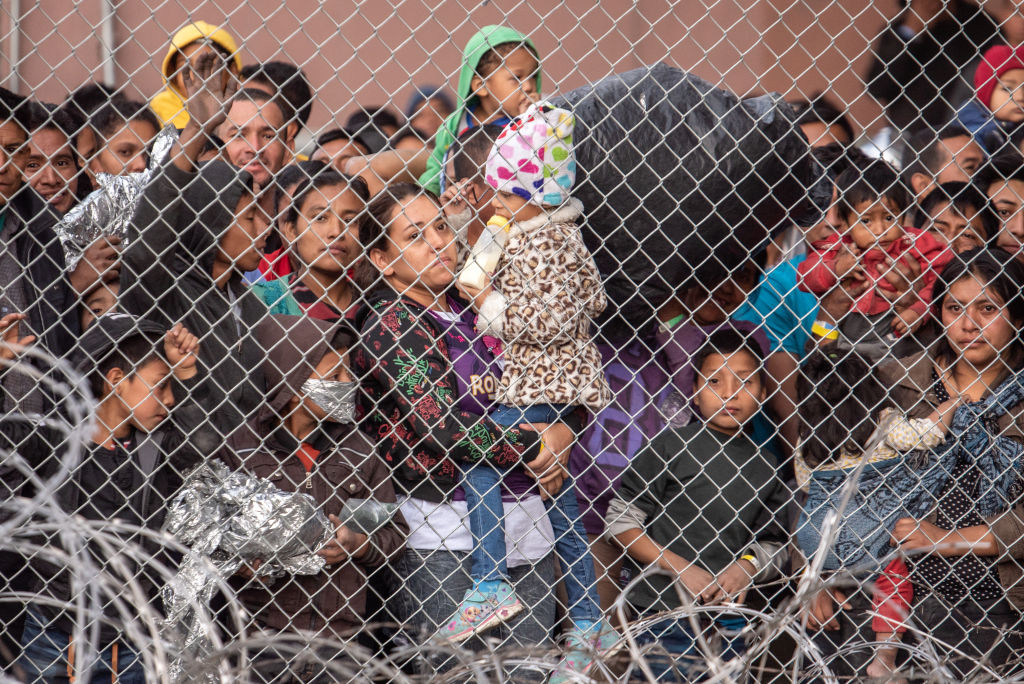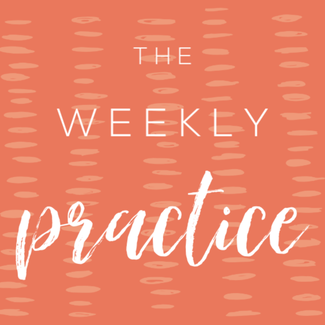"Arise, Lord! Lift up your hand, O God. Do not forget the helpless." [Psalm 10:12]
Migrant Detention Centers Conditions - Times Article
As we continue through the Psalms, this week I am struck by the psalms of lament, crying out for justice. As much as we would like to read peacefully through the psalms, there is hardly a page that isn't left smoking by a pungent curse. These outbreaks of hate that smite the enemy can be off-putting. We are used to peaceful prayers, sanitized prayers, detached prayers. There is a rawness and honesty in the psalms that is disruptive and yet necessary.
But you, God, see the trouble of the afflicted;
you consider their grief and take it in hand.
The victims commit themselves to you;
you are the helper of the fatherless.
Break the arm of the wicked man;
call the evildoer to account for his wickedness
that would not otherwise be found out.
The Lord is King for ever and ever;
the nations will perish from his land.
You, Lord, hear the desire of the afflicted;
you encourage them, and you listen to their cry,
defending the fatherless and the oppressed,
so that mere earthly mortals
will never again strike terror. (Psalm 10:14-18)
Eugene Peterson says this in his book Answering God: The Psalms As Tools For Prayer. "But immersed by prayer in this holiness, we see clearly what we never saw before, the utter and terrible sacrilege of enemies who violate a good creation, who brutalize women and men who are made, every one of them in the image of God. There is an enormous amount of suffering epidemic in the world because of evil people. The rape and pillage are so well concealed in polite language and courteous conventions that some people can go years without seeing it. And we ourselves did not see it. But now we see it. And we hate it. We are ejected from our cushioned private religion into solidarity with 'The Silent Servants of the Used, Abused and Utterly Screwed Up'."
So what happens when we no longer distance ourselves and begin to lament? What shifts in our prayers as we begin to cry out on behalf of those seeking refuge from violence at our borders who are only subjected to more violence?
In the article, Responding to Injustice With Lament, Andy Kim talks about how critical it is for the people of God to learn to lament. Here is an excerpt:
The Lost Discipline of Lament
The Bible is filled with lament. There is even an entire book devoted to lament (Lamentations, anyone?). Check out Psalms 10, 13, 22, 39, 44, 51, 56, 60, 74, 79, 80, 85, 90, 92, 1 Samuel 30:4, Jeremiah 31:15, Matthew 27:46. We see time and time again that when the God's people are faced with evil, injustice, oppression and turmoil, the Biblical response is often lament.
In Reconciling All Things, Emmanuel Katongole and Chris Rice help us to understand what lament is, and what it isn't:
"Lament is not despair. It is not whining. It is not a cry into a void. Lament is a cry directed to God. It is the cry of those who see the truth of the world's deep wounds and the cost of seeking peace. It is the prayer of those who are deeply disturbed by the way things are... The journey of reconciliation is grounded in the practice of lament." (pp. 78)
In our pursuit of multiethnic ministry and reconciliation, are we engaging in Biblical lament?
Author, pastor and theologian Soong-Chan Rah suggests that as the church in America, the answer is often a resounding no.
The Absence of Lament
In a 2013 article, Rah notes that while laments constitute 40 percent of the Psalms, they are conspicuously absent from contemporary American worship.
Rah observed that out of the top 100 worship songs from August 2012 according to Christian Copyright Licensing International (CCLI), only five songs fell into the category of lament, while the vast majority were celebratory praise songs..." (Looking at the current CCLI Top 100, not much seems to have changed.)
He explains here and in more depth in his book, Prophetic Lament:
"How we worship reveals what we prioritize. The American church avoids lament. Consequently the underlying narrative of suffering that requires lament is lost in lieu of a triumphalistic, victorious narrative. We forget the necessity of lament over suffering and pain. Absence doesn’t make the heart grow fonder. Absence makes the heart forget."
When we lack the discipline of lament, we run the risk of letting our triumphalism, our anger, our hurt, our fear or our apathy fester inside of us and paralyze us. Biblical lament calls us to sit in the pain, to truly see the brokenness in ourselves and in our world, and to cry out to God.
Are we willing?
Practice Lament
And so I encourage you to practice lament this week. Engage your heart and soul with the prayers of the psalmists. And along with your prayers, engage your bodies for I am reminded of the African proverb, "When you pray move your feet." And I've included below many ways in which you can participate and engage here locally.
"Pilgrimage is a posture very different from mission. The goal of a pilgrim is not to solve, but to search, not so much to help as to be present. Pilgrims do not rush to a goal, but slow down to hear the crying."
How do we put ourselves in the way of listening to those who are suffering? I encourage you to do participate in Lights for Liberty on Friday night or other local events.
RELOCATION
"The practice of relocation [means] taking our very bodies to the hard places and tarrying long enough to be disturbed."
It is easy to be undisturbed at a distance but what happens when we put our physical bodies in hard places? This is one of the reasons I will be going to the border and why it is important to show up at our own detention center in Tacoma (there is an event this Saturday).
CONFESSION
"[It's] a way of unlearning innocence. As we learn to go out of our way to draw near and tarry with the pain of the world... the challenge is to keep naming the truth, keep being disturbed, keep remember the awful depth of brokenness. The prayers of lament in the Psalms were public prayers, intended to be read and inserted into the corporate life of worship... It is critical that we learn to pray like this, bringing these prayers into public worship in a way that helps us tell the truth and confess in explicit relationships to the brokenness of our own contexts."
This is why we it is important that we pray the Psalms throughout the week and the Prayers of the People together at our gatherings. And we encourage you to write your own psalms and laments so that we can pray them together.


 RSS Feed
RSS Feed
